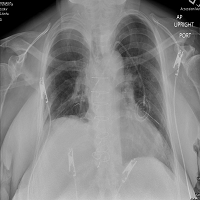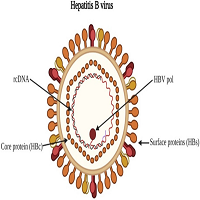Although breast cancer incidence has been stable for non-hispanic whites since the early 2000s, incidence rates of invasive breast cancers in African Americans (AA) are rising (0.9%/year 2005-2014).1 This is especially true for younger black women. Breast cancer incidence in black women under 45 years has recently surpassed that of their white counterparts.2 This is concerning as breast cancer specific mortality is higher in African Americans than all other races. Although many breast cancer risk factors have been identified, there is a need to develop breast prevention strategies specifically targeting the AA community.
A potential factor contributing to increased breast cancer incidence in African Americans is an increasing obesity rate among this population. A recent study using ecological analysis to quantify the long-term effect of breast cancer risk factors found that black women younger than 40 years experienced the largest increase in mean body mass index (BMI) compared to white women over the same period. Likewise, African Americans have higher BMI at breast cancer diagnosis and this may be related to presentation with later stage disease.3 Guidelines developed by the American Cancer Society (ACS) and World Cancer Research Fund/American Institute for Cancer Research (WCRF/ AICR) to aid in cancer prevention efforts include maintaining a healthy body weight, increasing physical activity, eating a nutritious diet, avoiding smoking and reducing alcohol consumption may be helpful to mitigate increasing breast cancer incidence in African Americans. However, a recent study in a prospective cohort of 566,398 adults showed that adherence to these guidelines is lowest among the African American population. In this study, adherence to one or less of the risk factor guidelines had a 38% increased risk of breast cancer (HR: 1.38, 95% CI: 1.25-1.52).4
In addition to decreasing breast cancer risk through modifiable lifestyle factors, genetic counseling and testing can substantially lower breast cancer risk by identifying women who carry hereditary mutations.5 Testing results can be used to recommend preventative interventions and enhanced screening options for these patients, and can also enable risk assessment among relatives who may also benefit. Furthermore, participation in genetic counseling has been shown to increase the accuracy of risk perception, reducing cancer related anxiety and depression.5 Although AA have the same risk for hereditary breast cancer as Caucasians, their participation in genetic counseling and testing is substantially lower.6 A recent meta-analysis of studies investigating access, perceptions, knowledge and attitudes about genetic counseling reported low awareness and knowledge of genetic counseling/testing by minority groups including African Americans. The authors recommended “to increase awareness and knowledge of genetic testing for cancer risk and to reduce the perceived stigma and taboo surrounding the topic of cancer in ethnic minority groups”.7
As one of the first community cancer centers in the country to have a genetic counseling program integrated within our multidisciplinary centers and clinical care, the Helen F Graham Cancer Center and Research Institute (HFGCCRI) has proven success with identification and referral of early onset and triple negative breast cancer cases. However, analyses of African American breast cancer patients undergoing genetic counseling at our institution parallel the national trends. Data from the HFGCCRI cancer registry indicates that although African Americans make up 21% of patients diagnosed with early-onset breast cancer, only 15% of eligible African American patients had undergone genetic counseling. This disparity is further increased for African American women with triple negative breast cancer, which is more prevalent in the African American population. All women who are diagnosed with triple-negative breast cancer (TNBC) at age≤60-years-old are automatically eligible for genetic counseling, regardless of family history. Although African American women represent 41% of this population, their participation in genetic counseling remains around 15%. This is particularly concerning as the state of Delaware ranks among the highest in incidence of triple negative breast cancer. Likewise, consistent with national numbers, breast cancer incidence is rising among African Americans in Delaware.8
To address these breast cancer disparities, the Breast Cancer Research Program at the HFGCCRI formed a Community Research Advisory Board (CRAB) composed of stakeholders in the Delaware breast cancer community including members of local African American sororities. Membership in the CRAB required the commitment of each member to: (1) contribute to HFGCCRI community based participatory research (CBPR) projects related to breast cancer (2) promote dialog between community members, breast cancer clinicians and researchers (3) serve as liaisons to establish trust and understanding of research activities in the community. (4) provide and promote education and dissemination of health, prevention and research information to the community.
Although much research has been done into causes of health disparities in breast cancer, dissemination of findings and implementation of strategies to overcome these disparities has been slow. In conversations with our CRAB, several critical points regarding the AA community were brought to our attention: (1) There is a lack of understanding in the AA community about different types of breast cancer and how treatments and outcomes may be different depending on the breast cancer subtype. (2) There is lack of knowledge about genetic counseling and the benefits of genetic testing for breast cancer prevention (3) There is lack of knowledge of general breast cancer prevention strategies. For example, members of the community were not aware of the linkage between obesity and breast cancer risks or the fact that breastfeeding can reduce risk of breast cancer and (4) Although trust issues remain one of the driving factors for lack of participation by African Americans in research, members also felt that there is a lack of appreciation of the benefits participation in clinical trials and genetic research by African Americans. Given this information, it was the consensus of the board that the most immediate community need was one of education and that our first project would be a community educational program to address these specific gaps in knowledge.
Using a community-based participatory research (CBPR) model, the CRAB choose a peer education platform (Train the Trainer) for delivery of the educational program. In contrast to a traditional medical format for breast cancer education, the community members of our board recommended that the presentation be in a story telling format. “The Story of BRENDATM” is presented from the viewpoint of a young AA woman who has recently been diagnosed with triple negative breast cancer.9 Throughout the presentation, BRENDA leads the audience through a series of her questions related to triple negative breast cancer, genetic testing, participation in research and breast cancer prevention. The trained community moderator then provides the information to answer each of these questions utilizing a script written by members of the board as talking points. At the end of the presentation, the audience is asked to remember the name BRENDA which is an acronym for the WCRF/AICR guidelines for breast cancer prevention: Breastfeed, Reduce consumption of alcoholic and sugary beverages, Exercise, Nutritious foods, Do not smoke and Achieve a healthy body weight. Attendees are also provided with a tool-kit containing more information about breast cancer and resources to determine if genetic counseling may be appropriate. Contact information to a genetics counselor and/or navigator for mammography is also distributed. The number of referrals for genetic counseling and navigation resulting from this education are tracked and used as an outcome measure. To allow for monitoring of the programs outcomes, as well as collection of data about community attitudes and beliefs about breast cancer, participants are given a short survey directly following the program.
As we have just completed the pilot phase of this program, it is too early to determine its success in creating a sustainable community education platform for the AA community and what impact it will have on breast cancer disparities within the state long-term. To increase sustainability, the program has been integrated into the cancer center’s outreach department, which conducts the educator training, coordinates event scheduling for community members sponsoring the presentation and serves as a liaison for program participants who seek genetic and/or navigation services at the cancer center. Although still in its early stages, the Story of BRENDATM has been well received by the community and several participants have sought genetic counseling. As we move to the next phase of the project, we hope to strengthen our partnership with the AA community and as we build on this program to reduce breast cancer incidence and improve outcomes for all women with breast cancer in the state.
CONFLICT OF INTEREST
The authors declare that they have no conflicts of interest.






